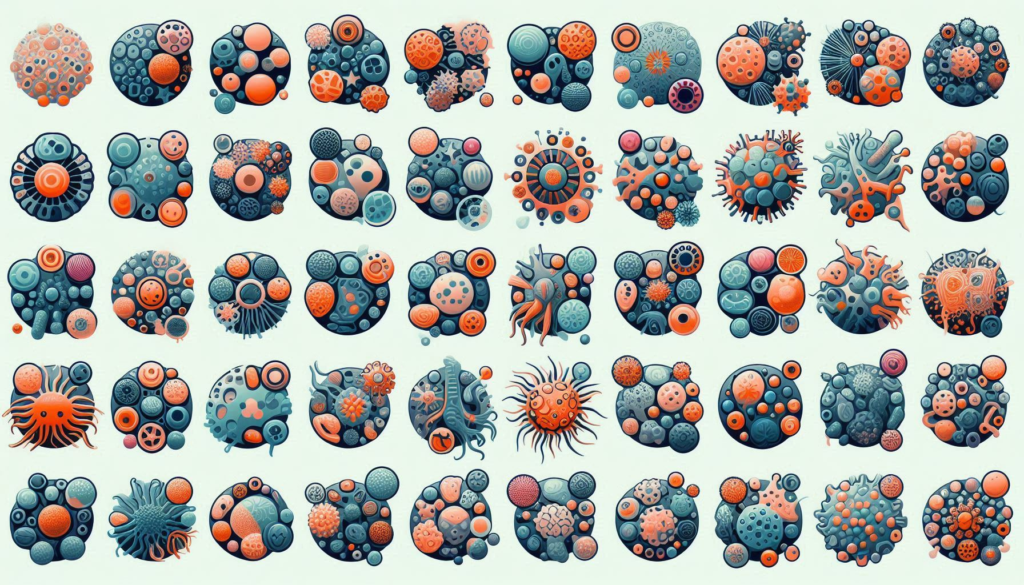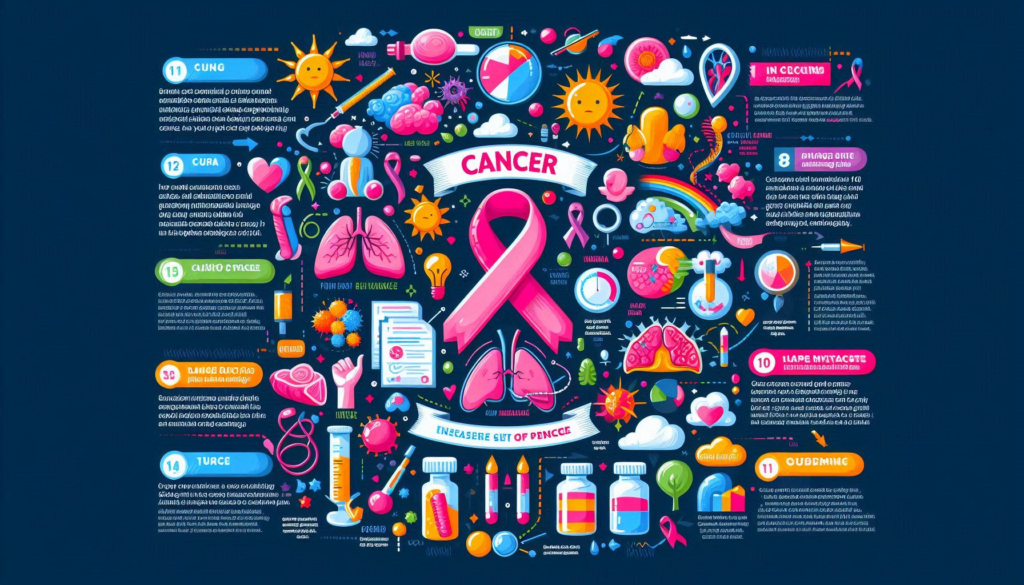
10 Powerful Facts About Cancer and Its Stages!
Discover essential facts about cancer and its stages to enhance your understanding and awareness of this critical health issue.


Introduction
Key Facts About Cancer You Should Know
Understanding the Beast: What is Cancer?
Cancer. The mere mention of the disease can cause chills to run down your back. It’s a complex and often devastating disease that affects millions worldwide. But what exactly is cancer? At its core, it’s about cells behaving badly.
The Uncontrolled Cell Growth
Imagine your body as a perfectly choreographed dance. Cells divide and grow in a controlled manner, replacing old or damaged ones. Cancer disrupts this delicate dance. It’s like a rogue dancer, breaking all the rules and spinning out of control. Cancer cells multiply relentlessly, forming tumors that can invade healthy tissues and disrupt vital functions.
The Role of DNA Damage
So, what causes this cellular rebellion? Often, it’s damage to our DNA, the instruction manual for our cells. Think of it like a typo in a recipe. This “typo” can cause cells to misinterpret instructions and start growing uncontrollably. These DNA errors can be inherited, caused by environmental factors like radiation or chemicals, or even occur randomly.
The Stages of Cancer: A Roadmap of Progression
Understanding the stages of cancer is crucial for both patients and their families. It’s like having a roadmap that helps navigate the often-uncertain journey.
Understanding cancer involves knowing some fundamental facts about its nature and stages.
Stage 0: Cancer in Situ
This is the earliest stage, where abnormal cells are present but haven’t spread beyond their original location. Think of it as a small fire contained within a fireplace. It’s often highly treatable.
Stage 1: Localized Cancer
The cancer has grown, but it’s still confined to the organ where it originated. The fire has spread a bit, but it’s still contained within the room. Treatment at this stage is often very successful.
Stage 2 & 3: Regional Spread
At these stages, the cancer has spread to nearby lymph nodes or surrounding tissues. The fire has now spread to other parts of the house. Treatment becomes more complex, but it’s still possible to achieve remission.
Stage 4: Metastatic Cancer
This is the most advanced stage, where cancer has spread to distant parts of the body, like the lungs, liver, or bones. The fire is now raging throughout the entire building. Treatment focuses on managing symptoms and improving quality of life. It’s a tough battle, but even at this stage, advancements in medicine offer hope.
Powerful Facts About Cancer You Should Know
Each of these facts about cancer plays an important role in how we confront and treat the disease.
Here are some crucial facts regarding cancer’s impact on health.
Now, let’s delve into some powerful facts that can help us better understand this formidable disease.
Fact 1: Cancer is Not One Disease
Cancer isn’t a single entity. It’s a collection of over 200 different diseases, each with its own unique characteristics, causes, and treatments. These various facts highlight the complexity of cancer.
Fact 2: Age is a Significant Risk Factor
While cancer can strike at any age, the facts show that the risk generally increases as we get older. This is because over time, our cells accumulate more DNA damage.
Fact 3: Genetics Play a Role, But Lifestyle Matters More
These facts emphasize the importance of early detection and how it saves lives.
While some cancers are linked to inherited genetic mutations, the facts indicate that the majority are influenced by lifestyle factors.
With evolving treatment options, these facts provide hope for patients and families.
Fact 4: Early Detection Saves Lives
Early detection is absolutely crucial. When cancer is caught in its early stages, treatment is more likely to be successful. Regular screenings such as mammograms and colonoscopies can significantly impact the outcome. It’s like finding a small leak in your roof before it causes major damage.
Fact 5: Treatment Options are Constantly Evolving
The field of cancer treatment is constantly evolving. New and innovative therapies, like targeted therapies and immunotherapies, are offering hope where there was once despair. It’s like the medical world is constantly developing new and more effective weapons in the fight against cancer.
Hope Amidst the Struggle: The Future of Cancer Care
While cancer is a formidable adversary, it is not invincible. These facts reveal the advancements in research and treatment.
Frequently Asked Questions (FAQs). Here are some factual answers to common inquiries regarding cancer.
- Can cancer be cured? Yes, many cancers can be cured, especially when detected and treated early. The definition of “cure” can be complex, but it generally means that the cancer is gone and unlikely to return.
- What are the most common types of cancer? The most common cancers vary depending on factors like age, sex, and lifestyle. Some of the most common include lung cancer, breast cancer, prostate cancer, and colorectal cancer.
- How can I reduce my risk of cancer? While there’s no guaranteed way to prevent cancer, you can significantly reduce your risk by adopting a healthy lifestyle: avoid smoking, maintain a healthy weight, eat a balanced diet, exercise regularly, and protect yourself from excessive sun exposure.
- Is cancer always painful? Not all cancers cause pain, especially in the early stages. Pain can be a symptom of some cancers, but it’s not always present.
- Where can I find support if I’m diagnosed with cancer? There are many organizations that offer support to cancer patients and their families, including the American Cancer Society, the National Cancer Institute, and local support groups. Don’t hesitate to reach out for help—you’re not alone in this fight.




One Comment
Pingback: